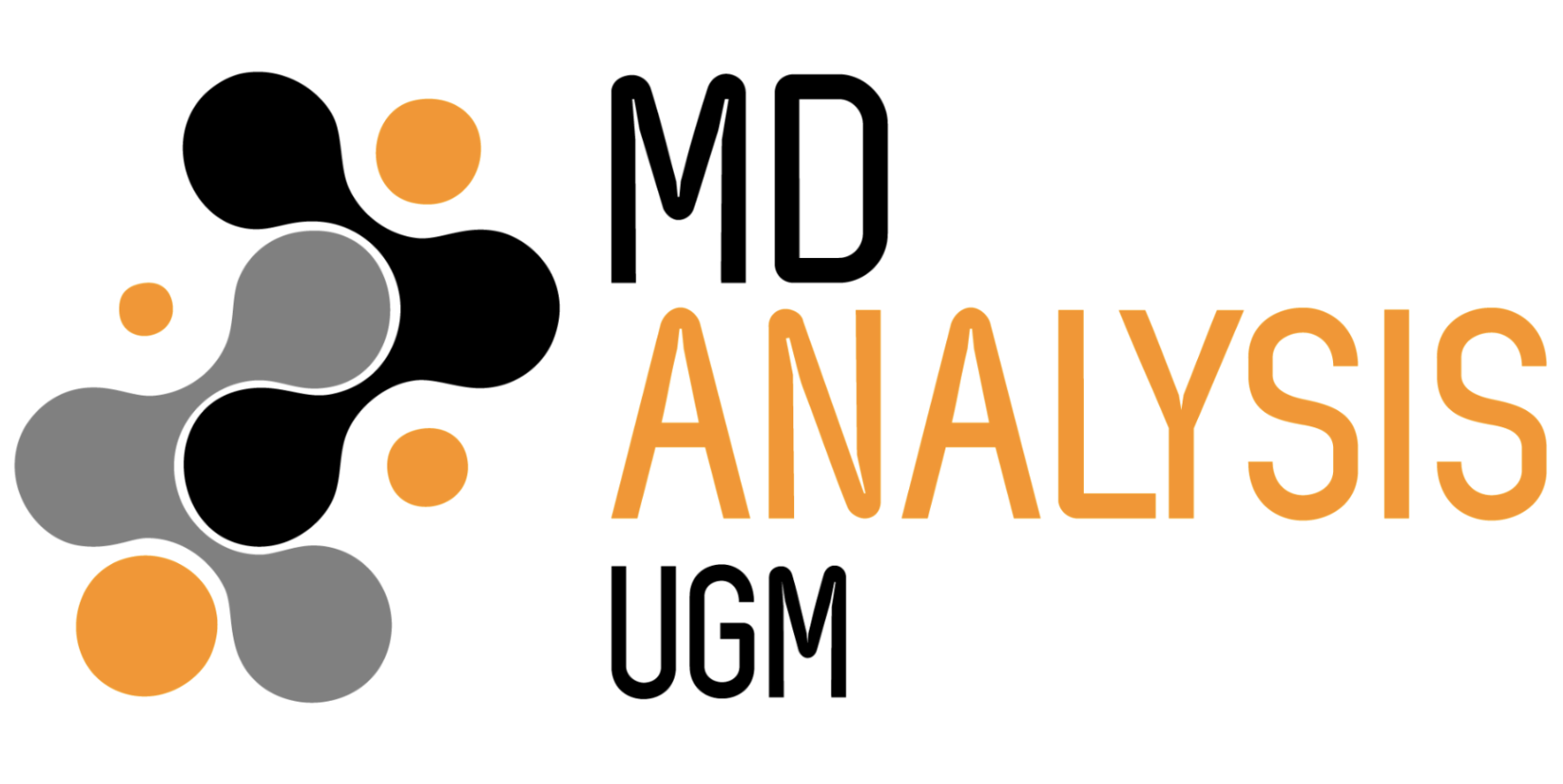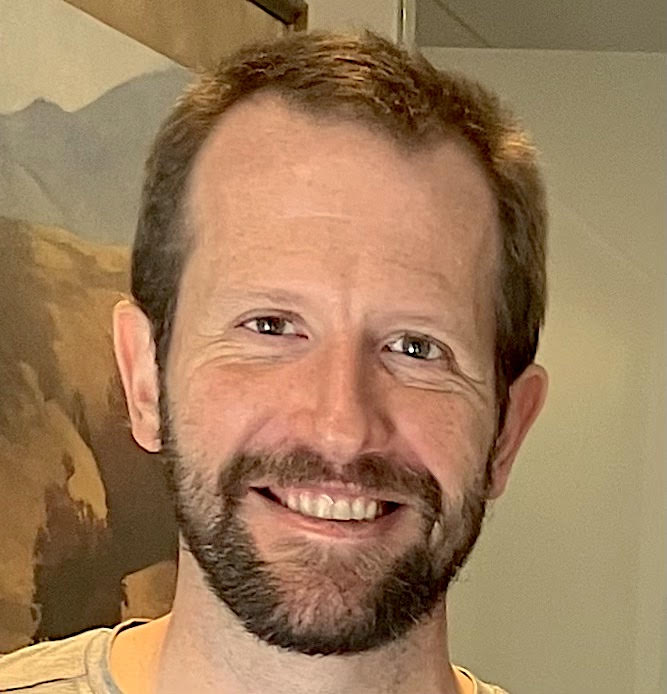MDAnalysis
working with data in the molecular sciences
Enable javascript for search.
© 2025. All rights reserved.

The 2025 MDAnalysis UGM (User Group Meeting) will be held in-person across 3 days, November 9th-11th, 2025, at Arizona State University.
Center for Biological Physics and Department of Physics
Arizona State University
Tempe, AZ 85287

The UGM will bring together users of the MDAnalysis package from different communities. Our goal is to foster an opportunity to connect interdisciplinary researchers and developers across biomolecular simulations, soft matter, materials science, and more. Whether you are a new MDAnalysis contributor, an MDAnalysis developer, or a researcher using (or interested in using) MDAnalysis for your work in academia or industry, this UGM is for you.
You can expect:
Register by July 15, 2025 Registration is now full! Thank you for your consideration in joining us, we hope to see you next year.
Online attendance is free.
A number of bursaries will be available to assist with travel and accommodation costs for participants from outside the greater Phoenix area. You can apply for a bursary as part of the registration process. We especially welcome your application if you consider yourself to be part of an underrepresented demographic in the computational molecular sciences. Bursary applications are now closed.
Lillian Chong is a Professor in the Department of Chemistry at the University of Pittsburgh. Her research focuses on developing and applying advanced simulation methods to investigate rare but biologically important events, with an emphasis on capturing rigorous kinetics. Her group leads the development of the open-source WESTPA software, which implements weighted ensemble path sampling strategies for efficient simulations of rare events. She also works on the development of implicitly polarized force fields and rational design of protein conformational switches. Prof. Chong received a B.S. in Chemistry at MIT and a Ph.D. in Biophysics from UCSF, under the mentorship of Peter Kollman. She then completed postdoctoral training with Vijay Pande at Stanford University and Bill Swope at the IBM Almaden Research Center. Her honors include the Gordon Bell Special Prize for COVID-19 Research and an NSF CAREER Award.

Matthias Heyden joined Arizona State University’s School of Molecular Sciences in 2017. Prior appointments include a research group leader position at the Max-Planck-Institut für Kohlenforschung and the Cluster of Excellence RESOLV, and as a postdoctoral researcher at the University of California, Irvine.
His group uses computer simulations to gain atomistic insights into molecular systems. A main focus of this work is to understand the process of solvation of small solutes (ions, alcohols and metabolites) up to large biopolymers (proteins and nucleic acids). Another avenue of his research is in the analysis of correlated vibrational motion in biomolecular liquids, which provide rich information on the propagation of energy and local density fluctuations within the system (i.e. sound propagation). These simulations can be compared to coherent scattering experiments with neutrons or x-rays, but the computer models allow further to isolate the correlations between specific components of the system and to follow time- and space correlations of atomic vibrations with spatial resolution. This provides entirely new insights into the dynamic coupling of low-frequency intermolecular vibrations in liquids and between biomolecules and their surrounding solvent. In addition, the Heyden lab develops novel methods to simulate biomolecular solutions on a large scale including 100s to 1000s of flexible proteins or polymers. These approaches provide insights into the complex interactions between biomolecules in realistic, crowded environments resembling the interior of living cells.
See the UGM schedule on the UGM 2025 github repository for the latest program details.
The table below gives a brief overview of the schedule.
| Time (room) |
Sunday, November 9, 2025 (PSF 186) |
Monday, November 10, 2025 (PSH 350) |
Tuesday, November 11, 2025 (PSF 186) |
|---|---|---|---|
| Morning | • Welcome * Introduction to MDAnalysis • Keynote (Matthias Heyden) • Contributed Talks • Posters |
• Keynote (Lillian Chong) • Contributed Talks |
• Workshop Installation Clinic • Visualization Workshop • Lightning Talks • OpenFF Workshop |
| Afternoon | • MDAnalysis Streaming Workshop | • Contributed Talks • Lightning Talks • Master Classes |
• OpenFF Workshop • OpenFE Workshop • OpenADMET Workshop |
Participants are expected to make their own travel and accommodation arrangements.
Tempe is part of the “Valley of the Sun” metropolitan area, which encompasses Phoenix, the 5th most populous city in the US. Today the area is home to more than 4.8 million people and encompasses the ancient lands of the Akimel O’odham (Pima), Maricopa, and Tohono O’odham tribes.
Phoenix Sky Harbor PHX airport has direct connections to all major hubs in the US.
PHX airport is 5.5 miles (10 minutes by car/rideshare) from the workshop venue.
The Valley Metro Light Rail connects the airport to Tempe along a West-East axis. If your destination is near a Light Rail stop then public transport works well:
To get from the airport to anywhere in Tempe either take a cab (traditional or self-driving Waymo) or rideshare (Lyft, Uber).
Reserve your room in the Hyatt Place Tempe Phoenix University Hotel Block while there are still rooms available! You can reserve between Nov. 8th and Nov. 11th using the provided link or use the group code, G-O208. This hotel is 0.3 mi from the meeting venue and 0.4 mi from the Light Rail. Breakfast is included.
Other hotels are available in Tempe within walking distance.
The workshop will be held in the Student Success Center in the Department of Physics at Arizona State University. The address is:
Department of Physics
Arizona State University
Physical Sciences F Building
550 E Tyler Mall, PSF 186
Tempe, AZ 85287
USA
IMPORTANT On the 9th and 11th of November, the workshop will be held in room PSF 186 in the Physical Sciences F building. On the 10th of November room PSH 350 in the Physical Sciences H building.
Paid parking is available in the Tyler Street Parking Structure and other on-campus parking structures.
Attendees requiring a letter clarifying the purpose of travel should contact the MDAnalysis project manager.
We will provide lunch during the event; breakfast provided by the conference hotel. More information on local food options and group outings will be added soon!
We are committed to providing a safe, comfortable, and healthy environment for the MDAnalysis UGM and have looked to local and international entities and other organizations in the open source community to develop onsite safety measures for UGM attendees.
Testing Positive for COVID-19
Individuals who are COVID-positive should not attend the UGM. If you receive a positive COVID-19 test result during the UGM, please notify the MDAnalysis UGM organizing committee and do not return to the event while you are still COVID-positive.
Face coverings are not required, but are welcomed. We view face coverings as a personal choice and will support attendees in their choice to wear or not to wear a face covering.
All members of the MDAnalysis community and participants in this UGM are expected to abide by the MDAnalysis Code of Conduct (CoC).
Be kind to others. Do not insult or put down others. Behave professionally. Remember that harassment and sexist, racist, or exclusionary jokes are not appropriate for MDAnalysis or NumFOCUS.
All communication should be appropriate for a professional audience including people of many different backgrounds. Sexual language and imagery is not appropriate.
MDAnalysis and NumFOCUS are dedicated to providing a harassment-free community for everyone, regardless of gender, sexual orientation, gender identity and expression, disability, physical appearance, body size, race, or religion. We do not tolerate harassment of community members in any form.
Thank you for helping make this a welcoming, friendly community for all.
You can find the long version of the Code of Conduct on the NumFOCUS website.
If you feel that the Code of Conduct has been violated, feel free to submit a report, by using the NumFOCUS Code of Conduct Reporting Form. For an appropriate immediate response, you may contact the CoC Committee members or other event staff/organizers, who will introduce themselves to you at the event.
Your report will be received and handled by the NumFOCUS Code of Conduct Working Group; trained, and experienced contributors with diverse backgrounds. The group is making decisions independently from the MDAnalysis project, PyData, NumFOCUS or any other organization.
You can learn more about the current working group members and the reporting procedure on the NumFOCUS website.
If you have any questions or special requests related to the UGM, you may contact the organizing committee.
A special thanks to our sponsors: